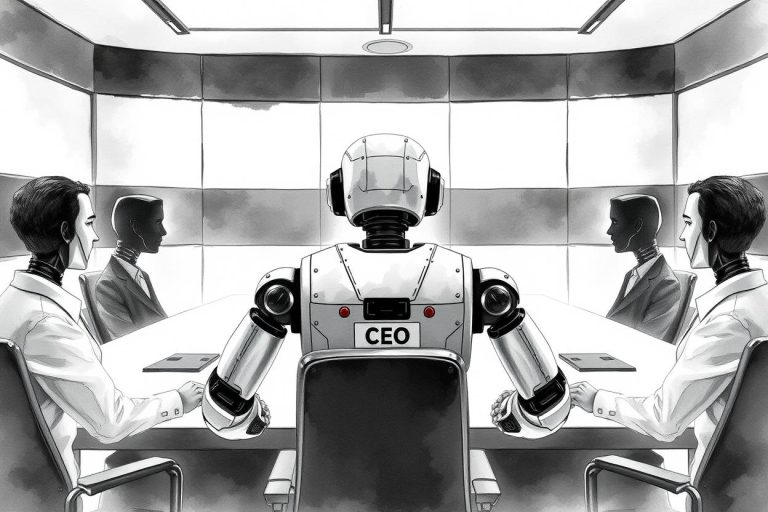Vertical AI Agents: Specialized Applications and Industry Impact

Vertical AI Agents are moving beyond general AI with specialized applications in finance, healthcare, and law. This guide explains what they are, how they work, and why their deep, industry-specific expertise delivers a higher return on investment in industry that needs them most.
What is a Vertical AI Agent?
A Vertical AI Agent is an autonomous system engineered for deep expertise within a single industry or business function, such as healthcare, finance, or legal services. These agents are built for depth, not breadth, possessing a fluent understanding of a specific domain’s unique vocabulary, processes, and regulatory requirements.
This specialization is driving significant investment. The market for AI in specific verticals is expanding rapidly, with projections showing the AI in Healthcare market reaching over $187 billion by 2030 and the AI in Fintech market hitting $61 billion by 2032, according to Grand View Research. Unlike general-purpose AI that has broad but superficial knowledge, a vertical agent operates like a specialist, delivering a more direct and measurable return on investment.
Why Are Vertical AI Agents a Distinct and Necessary Category?
It’s a common misconception that a vertical agent is just a general AI with a good prompt. The architectural differences are fundamental. A general agent with a knowledge base is like a general doctor with access to a medical library; a true vertical agent is like a trained cardiologist who has internalized the knowledge.
This distinction is best understood by comparing fine-tuning (the core of vertical agents) with Retrieval-Augmented Generation (RAG), which is used to give general agents access to custom data. Moreover, vertical agents are built on the infrastructure of learning agents with the capability for self-improvement.
| Feature | RAG (General Agent with Knowledge Base) | Fine-Tuning (True Vertical AI Agent) |
| Core Process | Retrieves relevant documents from a database and gives them to the LLM as context for a response. | Retrains the base LLM’s internal “weights” on a massive, curated, domain-specific dataset. |
| Knowledge | Externalized. The LLM’s “brain” is unchanged; it just reads from provided notes. | Internalized. The knowledge becomes part of the LLM’s core reasoning ability. |
| Behavior | Answers questions based on retrieved data. | Thinks, speaks, and reasons in the language and logic of the specific industry. |
| Best For | Building chatbots, Q&A systems, and internal knowledge search tools. | Creating expert systems for complex, regulated tasks like compliance checks or medical coding. |
This difference is why vertical AI agents are a necessary and distinct category. They are required for high-stakes environments where understanding industry nuance is not just a feature, but a core requirement.
How Are Vertical AI Agents Built to Be Specialists?
Specialized agent development is a deliberate process focused on creating a deep, narrow intelligence through three key technical pillars.
The foundation of a vertical agent is the data it learns from. The process of how to fine tune an AI agent involves taking a base LLM and retraining it on a highly curated dataset comprising millions of industry-specific documents—be they medical records, legal contracts, or financial reports. This intensive training reshapes the model’s neural pathways, embedding a deep understanding of domain-specific jargon, context, and complex concepts.
These industry-focused intelligent agents are delivered with pre-built integrations for standard industry software. A healthcare agent connects directly to Electronic Health Record (EHR) systems like Epic, while a legal agent integrates with case management software like Clio. Furthermore, their internal logic, or “reasoning loop,” is structured with industry rules and best practices, acting as guardrails to ensure their autonomous actions are compliant and reliable.
A vertical agent’s decision-making is intentionally limited to its domain. This is a critical safety feature. A domain-specific autonomous AI is built with operational constraints that prevent it from providing advice or taking actions that violate industry regulations. A financial services agent, for example, would be blocked from providing uncertified investment advice, containing its operations within legal and ethical boundaries.
Why Do Businesses Invest in Vertical AI Agents?
Companies adopt vertical AI agents to achieve three distinct business advantages that general-purpose AI cannot provide: measurable risk reduction, accelerated employee competency, and the creation of new high-margin services.
Operating in regulated industries like healthcare or finance carries significant compliance risk, with penalties for data breaches or AML violations costing companies millions. Because vertical agents are designed with regulatory frameworks like HIPAA and FINRA embedded in their logic, they reduce the likelihood of human error. They function as a consistent, auditable layer of operational governance, with some financial institutions reporting a 20-30% reduction in compliance costs after implementation.
A vertical agent provides an instant infusion of expert knowledge into a workflow. A newly hired compliance analyst may take six months to become fully proficient. A vertical agent, pre-trained on years of regulatory data, operates at an expert level on day one. This drastically reduces training time and costs, allowing companies to scale their specialized operations more efficiently.
By automating high-cost, data-intensive tasks, vertical agents free up human experts to focus on revenue-generating activities. For example, by using an AI paralegal that reduces document review time by up to 80%, a law firm’s senior lawyers can increase their billable hours focused on client strategy and high-value casework. This allows firms to serve more clients and develop new, technology-driven legal services.
What Are the Most Impactful Vertical AI Applications by Industry?
Targeted AI agent applications are already producing significant efficiency gains in regulated and data-intensive industries.
- Use Case: The AI Medical Scribe. Integrating with EHR systems, these agents listen to doctor-patient conversations and autonomously generate structured clinical notes. This can reduce a physician’s administrative workload by up to 40%, directly addressing a primary cause of professional burnout.
- Use Case: The Clinical Trial Assistant. This agent analyzes millions of patient records to identify individuals who meet the complex inclusion criteria for clinical trials. This can shorten patient recruitment timelines by up to 50%, a critical factor in a field where every day of delay can cost a pharmaceutical company over $1 million in lost revenue.
- Use Case: The Automated Compliance Officer. An agent trained on AML and KYC regulations can autonomously screen thousands of daily transactions, flag suspicious activity, and reduce false positives by up to 70% compared to older, rule-based systems.
- Use Case: The AI Wealth Management Associate. This agent analyzes market data and a client’s risk profile to generate personalized investment reports, allowing human advisors to manage a larger client base more effectively and devote more time to strategic financial planning.
- Use Case: The AI Paralegal. This agent performs legal research by searching through databases like Westlaw to find relevant case law in minutes. It also conducts e-discovery, reviewing vast document dumps to identify critical evidence with greater accuracy than human review teams.
- Use Case: The Contract Analysis Agent. Vertical AI agents can analyze legal agreements for risks and non-standard clauses. Independent studies suggest these tools can reduce contract review time for human lawyers by over 80%, from hours to minutes.
What Are the Applications for Self-Hosted Vertical Agents?
For industries where data security and sovereignty are paramount, self-hosted vertical AI agents provide an essential layer of protection.
A self-hosted cybersecurity agent can operate entirely within a company’s own network, or even in an air-gapped environment. It can continuously monitor network traffic, analyze logs, and identify anomalous behavior indicative of a threat. When an anomaly is detected, it can autonomously take defensive actions, such as isolating a compromised device from the network, all without sending sensitive internal data to a third-party cloud service.
Government and defense contractors use self-hosted agents to analyze sensitive intelligence data. By keeping the agent and the data on-premise, they eliminate the risk of exposure through a public cloud infrastructure. This allows them to apply advanced AI analysis to classified information while maintaining full control over the data’s physical and digital location.
What Are the Primary Challenges in Deploying Vertical AI?
Despite their advantages, the path to deploying specialized AI agents involves significant hurdles that businesses must anticipate.
- Data Scarcity and Quality: The performance of a fine-tuned agent is entirely dependent on the quality and quantity of its training data. For highly niche industries, acquiring a sufficiently large and clean dataset can be a major challenge and expense.
- The “Black Box” Problem: The complex, internalized reasoning of a vertical agent can be difficult to audit. Businesses in regulated fields need “explainable AI” (XAI) features to understand why an agent made a particular decision, which is a developing area of AI research.
- Integration Complexity: Connecting a vertical agent to a company’s existing, often decades-old, legacy software can be a complex and costly integration project. Gartner reports that such integration difficulties are a primary reason why up to 50% of AI projects fail to move from pilot to production. [Source: Gartner]
How Do You Choose Between Buying a Vertical Agent and Building One?
The decision to buy a pre-built SaaS product or build a customized AI agent is a critical strategic choice.
| Factor | Buying a SaaS Vertical Agent | Building a Custom Vertical Agent |
| Process | Procuring a ready-made product. | A project involving data sourcing, fine-tuning, and software integration. |
| Cost | Predictable subscription fees (OpEx). | High upfront development costs (CapEx) for talent and computing. |
| Speed to Market | Fast (deployment in weeks). | Slow (development takes many months or years). |
| Maintenance | Managed entirely by the vendor. | Requires an ongoing internal team for updates and monitoring. |
| Competitive Advantage | Low (competitors can buy the same tool). | High (creates a proprietary asset tailored to your exact business process). |
What is the Future of Specialized AI Agents in Business?
The development of vertical AI agents is accelerating, pointing toward a future of even more specialized and collaborative autonomous systems.
The market is moving beyond broad categories and toward hyper-niche agents designed for specific roles, such as an “AI agent for Level II medical coding” or an “AI agent for pharmaceutical patent law.” This increasing specialization will deliver unprecedented levels of accuracy and efficiency.
The value of human professionals will shift from performing routine tasks to managing and directing a team of specialized AI agents. Future job descriptions will demand new skills in strategic oversight, AI governance, and the ability to interpret and act on the outputs of these intelligent systems.
The future of complex business processes will involve inter-agent collaboration. For example, a corporate acquisition could be managed by a legal agent analyzing contracts, a finance agent conducting due diligence, and a compliance agent filing regulatory paperwork, all working in concert to complete the transaction with exceptional speed and accuracy.




